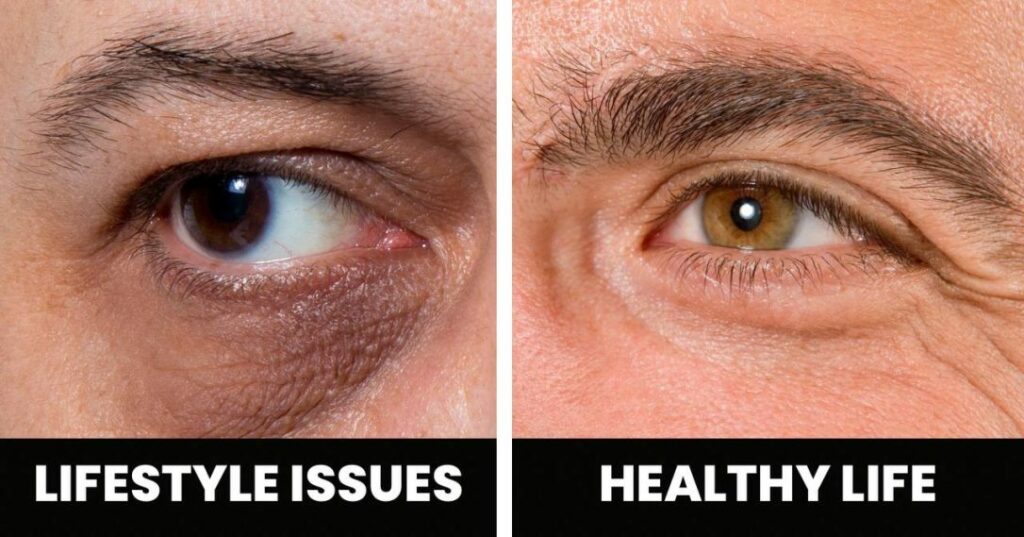These are some symptoms that may indicate underlying health problems. These symptoms include dark circles, yellowing of the skin, finger pain, unusual hair growth, a pimple that doesn’t heal, thinning eyebrows, acne on the jawline, thickened or darkened skin, black lines on nails, and a scalloped tongue.
While some of these symptoms may be benign, they may also indicate serious health issues that require medical attention. It’s essential to see a doctor if any of these symptoms persist or if there are concerns about underlying health problems.
Dark circles may indicate an unhealthy lifestyle or lack of sleep.

Yellowing of the skin or eyes can be a symptom of liver issues and requires immediate medical attention.

Finger pain and swelling can indicate problems with the lungs, kidneys, or breast cancer.

Shortness of Breath

While shortness of breath during intense physical activity is normal, unexplained or sudden breathlessness during routine tasks may suggest respiratory or cardiac issues. It could be linked to asthma, chronic obstructive pulmonary disease (COPD), or heart problems.
Frequent Digestive Issues

Persistent digestive symptoms such as bloating, diarrhea, constipation, or heartburn may signal gastrointestinal disorders like irritable bowel syndrome (IBS), celiac disease, or gastroesophageal reflux disease (GERD). Proper diagnosis and management can help improve digestive health.
Changes in Urinary Habits
Frequent urination, pain during urination, or changes in urine color or odor should not be overlooked. These symptoms may point to urinary tract infections, kidney stones, or even bladder or prostate issues.
Skin Changes
Skin can provide valuable clues about overall health. Changes like new moles, skin rashes, persistent itchiness, or unusual skin discoloration should be examined by a dermatologist. Skin symptoms can sometimes indicate skin cancer, allergies, or autoimmune disorders.
Mental Health Changes

Mental health symptoms like persistent sadness, anxiety, mood swings, or cognitive changes should not be dismissed. They could be signs of underlying mental health conditions, including depression, anxiety disorders, or cognitive decline.
Frequent Infections
Experiencing recurrent infections, like colds, urinary tract infections, or sinusitis, might signal an underlying issue with your immune system. Conditions like HIV, diabetes, or autoimmune diseases can weaken the immune system’s ability to fight off infections.
Vision Changes
Changes in vision, such as blurriness, double vision, or seeing flashes of light, should be assessed by an eye specialist. They could be related to eye conditions like cataracts or glaucoma, but sometimes they may indicate systemic health problems like diabetes or hypertension.
Listening to your body and recognizing symptoms that may indicate health problems is a crucial aspect of proactive healthcare. While these ten symptoms can be indicative of underlying issues, it’s important to remember that many of them can have various potential causes.
Therefore, seeking prompt medical advice and undergoing proper evaluation is key to identifying and addressing any health concerns. Regular check-ups with a healthcare provider can also help in the early detection of health issues and the maintenance of overall well-being. Remember, your health is a valuable asset, and taking steps to preserve and protect it is a worthy investment in your future.




